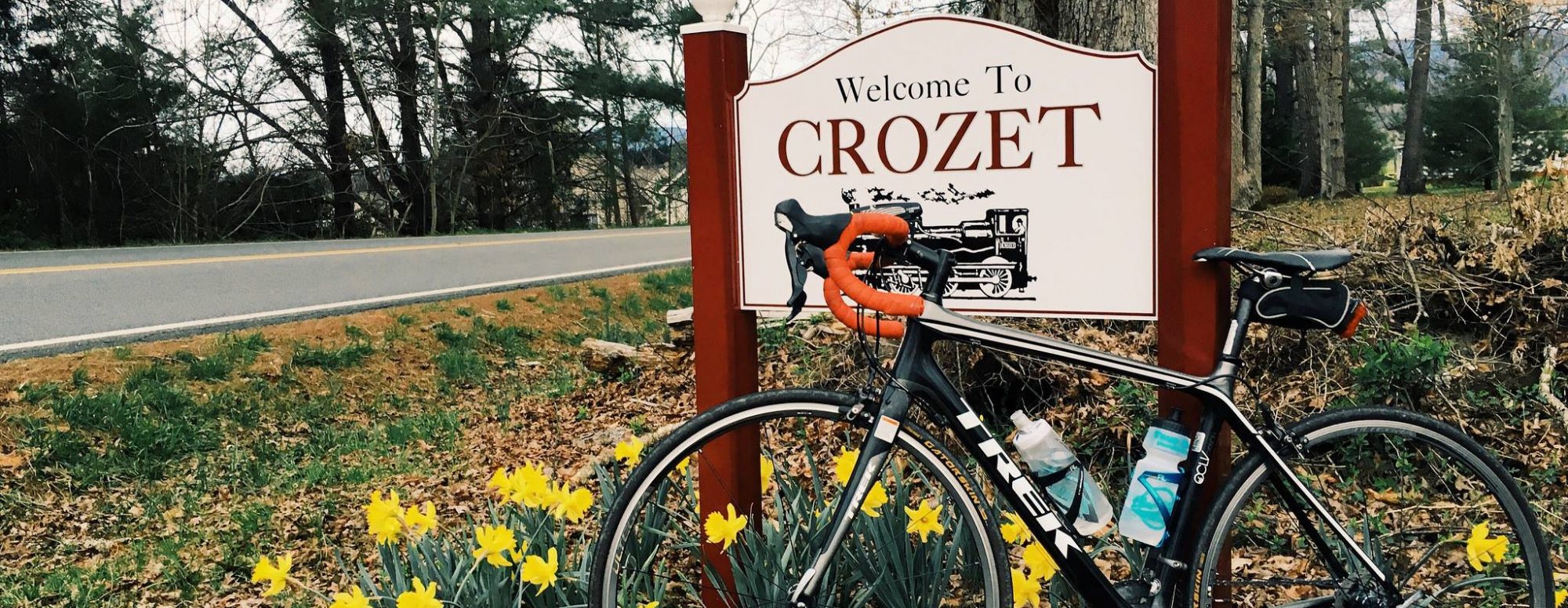Yes, traffic sucks sometimes (school time, anyone?), and it’s going to get worse. What if … we grew Crozet, locally and more sustainably?
We’re definitely going to get more houses … houses that don’t pay for themselves, or the infrastructure (schools, roads, etc) that we use.
Think about this story in the context of the possible redevelopment of downtown Crozet.
“They’ll see they’re working against the tide very soon when millennials eventually head to the suburbs,” he says. “We see a lot of what we call ‘millennials in mourning.’ They’re married with their first child, and the last place they think about is the urban environment. A lot of people are soon going to be at the point where finding a good place for their kid to go to school is going to be a lot more important than the coolest restaurant to hang out. Unfortunately for some companies, they may be moving into the cities just before the tide goes the other way.”

Walk , ride, drive

Just past Bloomfield, going into Charlottesville at 8:30 am

Just before Boars Head, going into Charlottesville at 8:30 am
Sadly, we are in an environment that is remarkably conducive to walking or riding bikes to school, but 1.5 -2 miles is apparently an unconquerable distance for many.
What if … we had jobs to walk or ride to as well?
If we figure that the average driver in the US does 20,000 miles a year, I’m going to use about 400 gallons of gas. A car getting 20 mpg is going to use closer to a thousand gallons. Figure that there are about 100 million actively driven cars in the US, which means that the net difference if “everybody did it” has the potential to save 60 billion gallons (600 times 100 million) of gas. A year. (* Jim’s note – this is from 2007)
We have an opportunity as a community to encourage great businesses and jobs to locate here; The more we can grow our local, read: Crozet, economy, the better for all.
Interesting corresponding facebook conversation as well.
My brief opinion: Wishing that Crozet would stay small is not realistic, and continuing to grow as primarily a bedroom community for Charlottesville is not sustainable.
As a result, average city home values doubled between 2000 and 2010 to $321,000. And Albemarle homes—which are in the growth area and spread across the large lots countywide—have median prices of $309,000. Those aren’t New York or San Francisco figures, but they are well above the state and national medians, and show what happens when a city and county conspire to cordon off most of its land.
What happens for those who want to live here, but can’t meet this financial barrier? Many of them move further out, said Ridge Schuyler, who runs a self-sufficiency program for low-income people at Piedmont Virginia Community College. Schuyler said his program generally has two types of people: the first are extremely low-wage workers who qualify for Charlottesville’s public housing. The second are slightly higher-paid service workers who don’t qualify for public housing, yet can’t take that next step of competing for Charlottesville’s market-rate units. They’re the ones settling for outlying counties.
“If you try to move up the income ladder,” Schuyler said of this second group, “once you get into that first rung job of making $28,000 to $32,000, you are almost forced to move away.”
This explains why neighboring counties like Fluvanna, Louisa, Orange and Greene have roughly doubled their populations since 1990. Charlottesville-area workers who live out in them must also foot the higher transportation costs of driving 30-plus miles twice daily.
Quick Crozet real estate context
- From 1 January to 12 September 2017, 243 homes (attached and single family) have sold in Brownsville + Crozet.
- 82 new homes (single family + attached) have sold in that timeframe.
- Average price is $603K (source of this, and above: CAARMLS)
- Crozet Real Estate Market – July 2017 Hotsheet (PDF)





